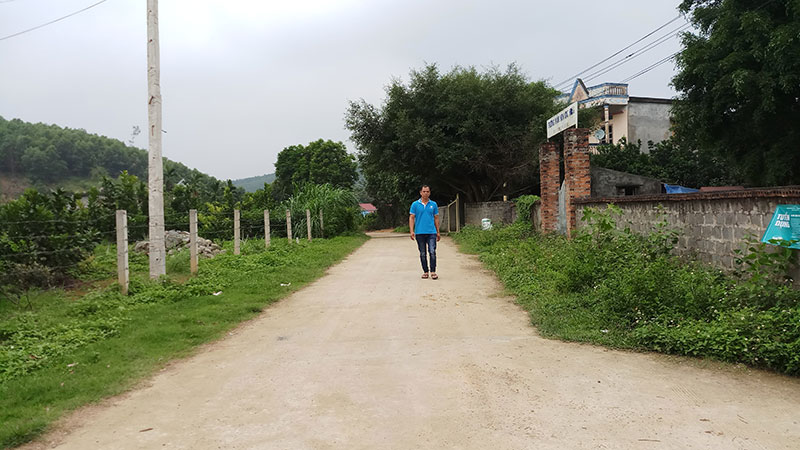
(HBO) - Yen Thuy district is home to seven ethnic groups living together, including 49,239 ethnic minority people, making up 69.53 percent of the district’s population. In recent years, Yen Thuy has stepped up the implementation of programmes, projects and policies to support ethnic minority areas, including the mobilisation of resources for socio-economic development.
 Thanks
to the Government’s Programme 135, many roads in the particularly disadvantaged
commune of Lac Hung in Yen Thuy district have been concretised.
Thanks
to the Government’s Programme 135, many roads in the particularly disadvantaged
commune of Lac Hung in Yen Thuy district have been concretised.
The policy system on sustainable poverty
reduction has been strengthened while many related policies have been brought
into reality and proved efficient such as the Programme 135, the loan policy
for poor households, and the transfer of plant and animal structure.
In the 2014-2019 period, with the total
investment of over 894 trillion VND from central, provincial and district
budgets and the World Bank, the electricity system along with schools and roads
across Yen Thuy have been improved, contributing to promoting socio-economic development
in ethnic minority areas. Besides, the district also promotes the
implementation of the preferential credit loan support policy.
The district has backed the construction of
houses for 203 poor households, offered tuition exemption and reduction for
8,636 needy students, and provided free health insurance cards for 100,607
underprivileged people, as well as supported electricity for 28,189 poor
families with total expenses of 4.143 trillion VND.
Besides, Yen Thuy has supported over 1,426
people with short-term vocational training courses, mainly those from poor,
nearly-poor, and ethnic minority households.
Thanks to the diversification of poverty
reduction activities over the past five years, the rate of poor households in
the district has been reduced by over 2 percent per year to 13.9 percent in
2018./.
More than just an information technology teacher, Bui Van Nien is an inspiring figure who has nurtured the scientific curiosity and creative spirit of students in Vietnam’s ethnic minority communities.
Da Bac is the most disadvantaged mountainous district in Hoa Binh province, with ethnic minorities accounting for about 90% of its population. Over the past years, the district has mobilised resources to implement ethnic policies to improve the quality of life of local people.
In recent years, Hoa Binh province has consistently prioritised the protection, care, and education of children, particularly those from ethnic minorities and disadvantaged backgrounds, by creating a safe, healthy, and nurturing environment for their all-round development.
The Steering Committee for Tobacco Harm Prevention and Control of Hoa Binh province, in coordination with the Tobacco Harm Prevention and Control Fund, held a ceremony on May 28 in response to the World No Tobacco Day (May 31) and the National No Tobacco Week (from May 25 to 31). The event was chaired by Nguyen Van Toan, Standing Vice Chairman of the provincial People’s Committee and head of the Steering Committee.
Since 2021, the Center for Industrial Promotion and Industrial Development Consulting (CIIDC) under the Department of Industry and Trade has been implementing a school lighting model as part of the plan for using energy efficiently and economically in Hoa Binh Province in the pẻiod of 2021 - 2025. This model not only aims to improve the learning conditions and enhance the education quality, but it also promotes the message of energy saving, energy security, environmental protection and contributes to the goals of socio-economic development.
In the 2024 - 2025 school year, the entire Hoa Binh provincial education sector includes 520 educational institutions and schools. Among them are 13 ethnic boarding schools with 153 classes and 4,487 students. Four of these schools have met national standards, reaching 30.7 percent.



 Thanks
to the Government’s Programme 135, many roads in the particularly disadvantaged
commune of Lac Hung in Yen Thuy district have been concretised.
Thanks
to the Government’s Programme 135, many roads in the particularly disadvantaged
commune of Lac Hung in Yen Thuy district have been concretised.